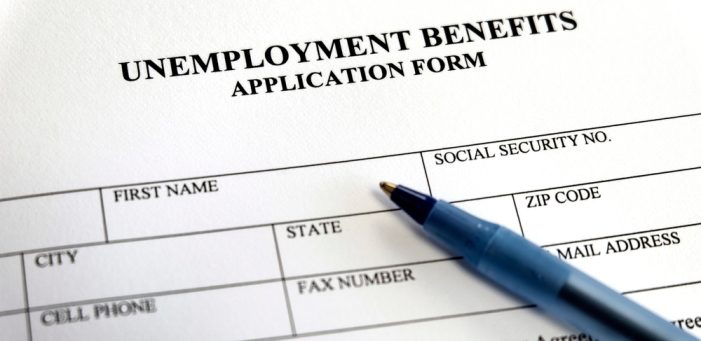By
If you get laid off, head to the Department of Labor’s website ASAP.
It’s a tough job market right now for lots of New Yorkers.
As Elon Musk’s Department of Government Efficiency (DOGE) continues to cut staff across federal agencies, at least 942 former federal workers have filed for unemployment in New York State in the last two months according to a Department of Labor spokesperson.
That doesn’t count people cut from jobs with nonprofits or services organizations affected directly by federal budget cuts. And more federal layoffs are likely soon.
For example, the Trump administration is reportedly planning to cut over 80,000 employees from the Department of Veterans’ Affairs, and New York City has some of the highest concentrations of VA hospitals in the country.
And it’s not just people in federal jobs: February saw the most job cuts nationally since Covid, including in retail, tech, and finance.
If you lose your job in New York, you have a safety net: unemployment insurance benefits, often referred to as simply “unemployment.” The state Department of Labor runs the benefit system, which is funded by taxes on employers.
Claiming unemployment can get you up to $504 a week, depending on how much you’ve earned per quarter in the previous year.
Here’s what you need to know about filing for unemployment insurance benefits in NYC:
Who qualifies for unemployment insurance benefits?
In New York, you can file for unemployment if you meet these criteria:
- You lost your job through no fault of your own
- You have worked in New York in the last 18 months — not necessarily lived here, but worked here
- You are ready, willing and able to work and are actively looking for a new job
- and you’re authorized to work in the U.S.
The first part — that you lost your job through no fault of your own — covers almost all layoffs. If you’re fired, it’s definitely harder to get benefits, but not always impossible. If you were fired for alleged misconduct, your ability to receive benefits depends on whether your employer gave you enough notice that you were doing something wrong.
“Usually you have to have received a prior warning for the same behavior, so you have to know or should’ve known that the job was in jeopardy,” explained lawyer Elizabeth Saylor, the director of the Employment Law unit at the Legal Aid Society.
For example, if you were fired because you had shown up to work late a number of times, that’s a legitimate reason for firing. But, unless your boss had given you a warning that showing up late would result in you being fired, you may still be able to collect unemployment.
“I see people initially denied sometimes for misconduct, but usually we can win at a hearing.”
Since you must be authorized to work in the U.S. to claim benefits, undocumented people and people here without work authorization — including through travel or student visas — cannot receive unemployment.
Before you get laid off
If you know that your job might be in jeopardy, get your ducks in a row.
“Two tips that I could give somebody while they’re employed is to do the ID verification and use the time to get all your documents,” said Nicholas Posada, a director of contract reporting at the Fortune Society. He’s coordinated benefits for 15 years for people who have been incarcerated that are reentering the workforce.
In order to apply for unemployment benefits, you may need to verify your identity through the ID Me system — a digital “identity wallet” used by both the private and public sector. It requires scanning your driver’s license, Social Security card or birth certificate, and then entering a video chat with a representative so that they can confirm who you are on camera.
Other than identifying documents like your Social Security card, you should also make sure that you have your recent tax documents and W2 forms or, if you were paid in cash, some way to track your earnings — a spreadsheet, notebook or copies of the checks.

